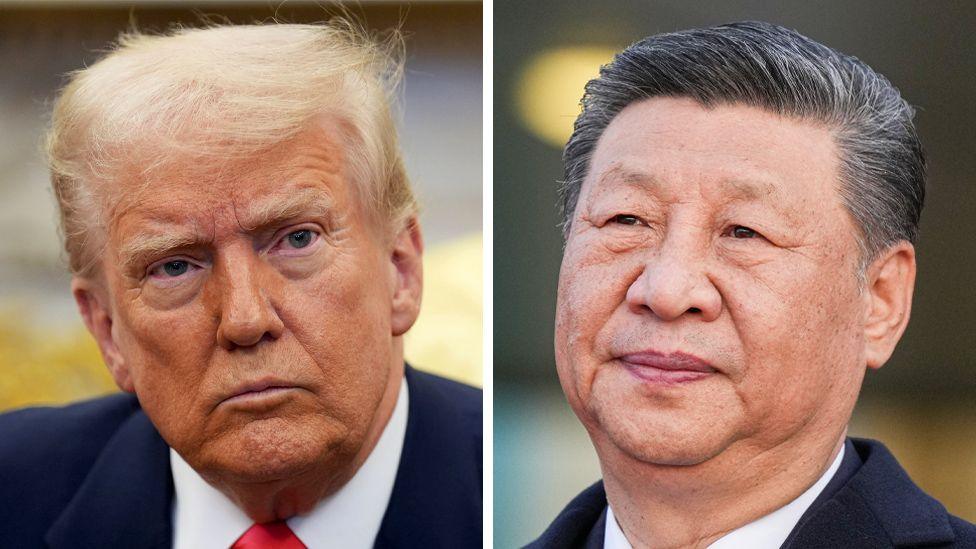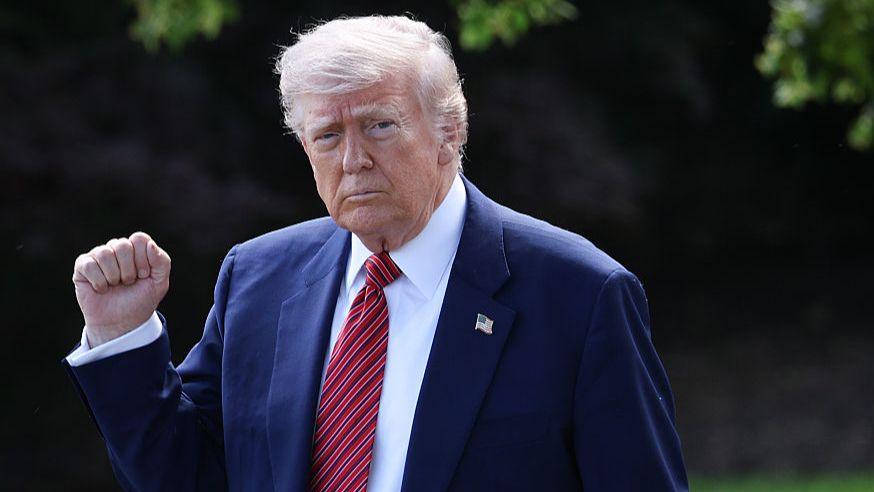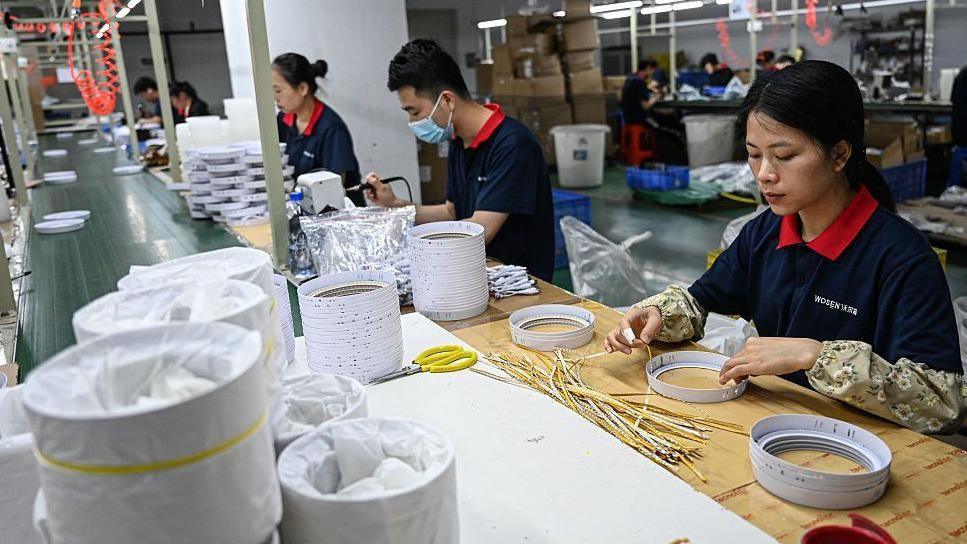China hits back after Trump claims it is 'violating' tariff truce

US President Donald Trump and Chinese President Xi Jinping agreed to reduce reciprocal tariffs earlier this month
- Published
US President Donald Trump has accused China of violating a truce on tariffs struck earlier this month, a claim China has responded to with its own accusations of US wrongdoing.
Washington and Beijing agreed to temporarily lower tit-for-tat tariffs after talks in Geneva.
But Trump said on Friday that China had "totally violated its agreement with us". He did not give details but US Trade Representative Jamieson Greer later said China had not been removing non-tariff barriers as agreed under the deal.
Beijing's response on Friday did not address the US claims directly but urged the US to "cease discriminatory restrictions against China".
The strong statements from both sides have raised concerns that trade tensions could again escalate between the world's two largest economies despite recent negotiations.
Trump on Friday said in a Truth Social post that the tariffs his administration had imposed had been "devastating" for China and so he had "made a FAST DEAL" to save them from "what I thought was going to be a very bad situation".
"Everybody was happy! That is the good news!!! The bad news is that China, perhaps not surprisingly to some, HAS TOTALLY VIOLATED ITS AGREEMENT WITH US. So much for being Mr. NICE GUY!"
He did not expand on his accusation, but Ambassador Greer later told TV network CNBC that China was yet to properly roll back other trade restrictions it had levied on the US.
Greer said when China responded to the US's tariffs with its own, they also put in place countermeasures such as putting some US companies on blacklists and restricting exports of rare earth magnets, a critical component in cars, aircraft and semiconductors.
"They removed the tariff like we did but some of the countermeasures they've slowed on," Ambassador Greer said.
He added the US had been closely watching China to make sure it would comply with the deal and they were "very concerned" with the progress.
"The United States did exactly what it was supposed to do and the Chinese are slow-rolling their compliance which is completely unacceptable and has to be addressed," Greer said.
China responded on Friday urging the US to "immediately correct its erroneous actions, cease discriminatory restrictions against China and jointly uphold the consensus reached at the high-level talks in Geneva".
A spokesman from its Washington embassy said China had recently "repeatedly raised concerns" with the US over its "abuse of export control measures in the semiconductor sector". The US already has restrictions in place on technology exports to China, and on Wednesday paused more sales to China of chip technologies - crucial to semiconductors - and also paused exports of chemicals and machinery.
Pengyu Liu said both sides had maintained communication since the talks in Geneva on 11 May, which had ended on a positive note.
However on Thursday, US Treasury Secretary Scott Bessent had said trade talks with China had become "a bit stalled".
Bessent told Fox News on Thursday: "I think that given the magnitude of the talks, given the complexity, that this is going to require [leaders of both the countries] to weigh in with each other."
Trump's global tariff regime was dealt a blow on Wednesday following a ruling that he had exceeded his authority. His plans have been temporarily reinstated after the White House appealed the decision.
His administration this week also moved to "aggressively" revoke the visas of Chinese students studying in the US, of which there are an estimated 280,000.
In Geneva, Washington and Beijing had agreed to reduce tariffs imposed on each other's imports in a deal where both nations cancelled some tariffs altogether and suspended others for 90 days.
Bessent said talks on a further deal had lost momentum, but stressed they were continuing.
"I believe that we will be having more talks with [China] in the next few weeks and I believe we may at some point have a call between the president and [Chinese President Xi Jinping]," Bessent said on Thursday.
He added the pair had "a very good relationship" and he was "confident that the Chinese will come to the table when President Trump makes his preferences known".
"We will win this battle in court" - White House on tariff ruling
Under the deal struck earlier this month, the US lowered tariffs imposed on goods from China from 145% to 30%.
China's retaliatory tariffs on US goods dropped from 125% to 10%.
The US President has argued imposing tariffs on foreign goods would encourage US consumers to buy more American-made goods, bringing back manufacturing jobs while increasing the amount of tax revenue raised.
They have been used by the Trump administration as leverage in negotiations as it seeks to reduce trade deficits with other nations.
A delegation from Japan are continuing trade talks with their US counterparts in Washington on Friday.
Bessent said "a couple" of US trade deals were "very close", but "a couple of them are more complicated".
Trump's tariff regime remains in the balance following the decision by the US Court of International Trade, which ruled that Trump had overstepped his power by imposing the duties.
Some analysts believe it will mean countries will be less likely to rush to secure trade deals with the US.
A federal appeals court has granted a bid from the White House to temporarily suspend the lower court's order, which Trump described as "horrific".
"Hopefully, the Supreme Court will reverse this horrible, Country [sic] threatening decision, QUICKLY and DECISIVELY," he wrote on his Truth Social platform.
Related topics
- Published30 May

- Published12 May

